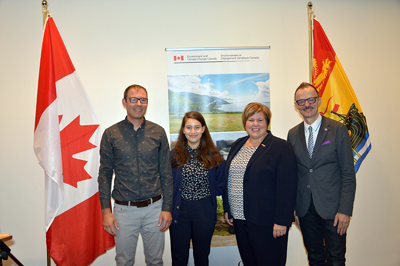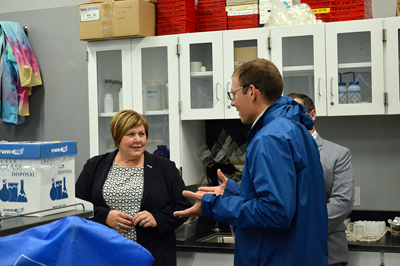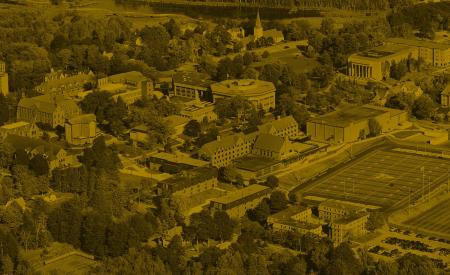Mount Allison researchers receive Environment and Climate Change Canada funding for microplastics study
Funding will help track levels of microplastics in NB waters
 SACKVILLE, NB – Three Mount Allison University professors and several students will be taking a closer look at microplastics in the Saint John River watershed. Dr. Josh Kurek (geography and environment), Dr. David Lieske (geography and environment), and Dr. Tyson MacCormack (biochemistry) have received over $184,000 in funding from Environment and Climate Change Canada (ECCC) through the Atlantic Ecosystems Initiatives program.
SACKVILLE, NB – Three Mount Allison University professors and several students will be taking a closer look at microplastics in the Saint John River watershed. Dr. Josh Kurek (geography and environment), Dr. David Lieske (geography and environment), and Dr. Tyson MacCormack (biochemistry) have received over $184,000 in funding from Environment and Climate Change Canada (ECCC) through the Atlantic Ecosystems Initiatives program.
The announcement was made at Mount Allison on Oct. 10 by MP for Fundy Royal Alaina Lockhart on behalf of Minister of Environment the Honourable Catherine McKenna.
The newly-funded Mount Allison project — Emerging concerns of microplastic pollution in the Saint John River watershed — will include spatial and geographic information system data mapping. The project aims to determine microplastic distribution, demonstrating where there are concentrations of, and help recognize potential impacts to freshwater mussels.
“Microplastics are widespread in our environment, including our water, air, and soils,” says Mount Allison Geography and Environment Professor Dr. Josh Kurek, one of the researchers leading the project. “Many microplastics come from sources people might not expect, including synthetic materials used in clothing. Learning about how they affect freshwaters in our region will help to develop future strategies to reduce microplastics through technology, regulations, and public education.”
Mount Allison Geography and Environment Professor Dr. David Lieske is also working on the project. Lieske is the director of the Mount Allison Geospatial Modelling Lab (GML) and his research expertise encompasses spatial statistical modelling, geographic information systems (GIS), and geovisualization.
“An important aspect of this project will involve mapping the distribution of microplastics and relating these patterns to landscape-level environmental characteristics, for instance, human land use upstream of the monitored sites,” says Lieske.
 Mount Allison Biochemistry Professor Dr. Tyson MacCormack is also a co-researcher on the microplastics study. MacCormack’s work focuses on understanding how aquatic organisms respond to environmental stressors, and in particular, how they are impacted by anthropogenic contaminants like engineered nanomaterials.
Mount Allison Biochemistry Professor Dr. Tyson MacCormack is also a co-researcher on the microplastics study. MacCormack’s work focuses on understanding how aquatic organisms respond to environmental stressors, and in particular, how they are impacted by anthropogenic contaminants like engineered nanomaterials.
“Work from Dr. Kurek and others has demonstrated that microplastics are a ubiquitous pollutant in aquatic and marine ecosystems, but we lack a fundamental understanding of their toxicity,” says MacCormack. “This project will provide insights into the mechanisms underlying microplastics toxicity and identify areas of concern in the Saint John watershed.”
The project began in August and is expected to run until 2021.
Through the ECCC’s Atlantic Ecosystems Initiatives Funding Program, a total of $1.09 million was awarded to seven projects, including Mount Allison’s, that focus on improving water quality in the iconic Saint John River watershed.
Photo captions:
(L-R): Joshua Kurek, Mount Allison geography and environment professor; Abbie Gail Jones, honours biology and environmental science student and event emcee; Alaina Lockhart, Member of Parliament for Fundy Royal; and Jean-Paul Boudreau, Mount Allison University President and Vice-Chancellor at the announcement for Environment and Climate Change Canada’s Atlantic Ecosystems Initiatives Funding Program, held at Mount Allison on Oct 10.
Alaina Lockhart, MP for Fundy Royal tours Dr. Joshua Kurek’s lab at Mount Allison University.



